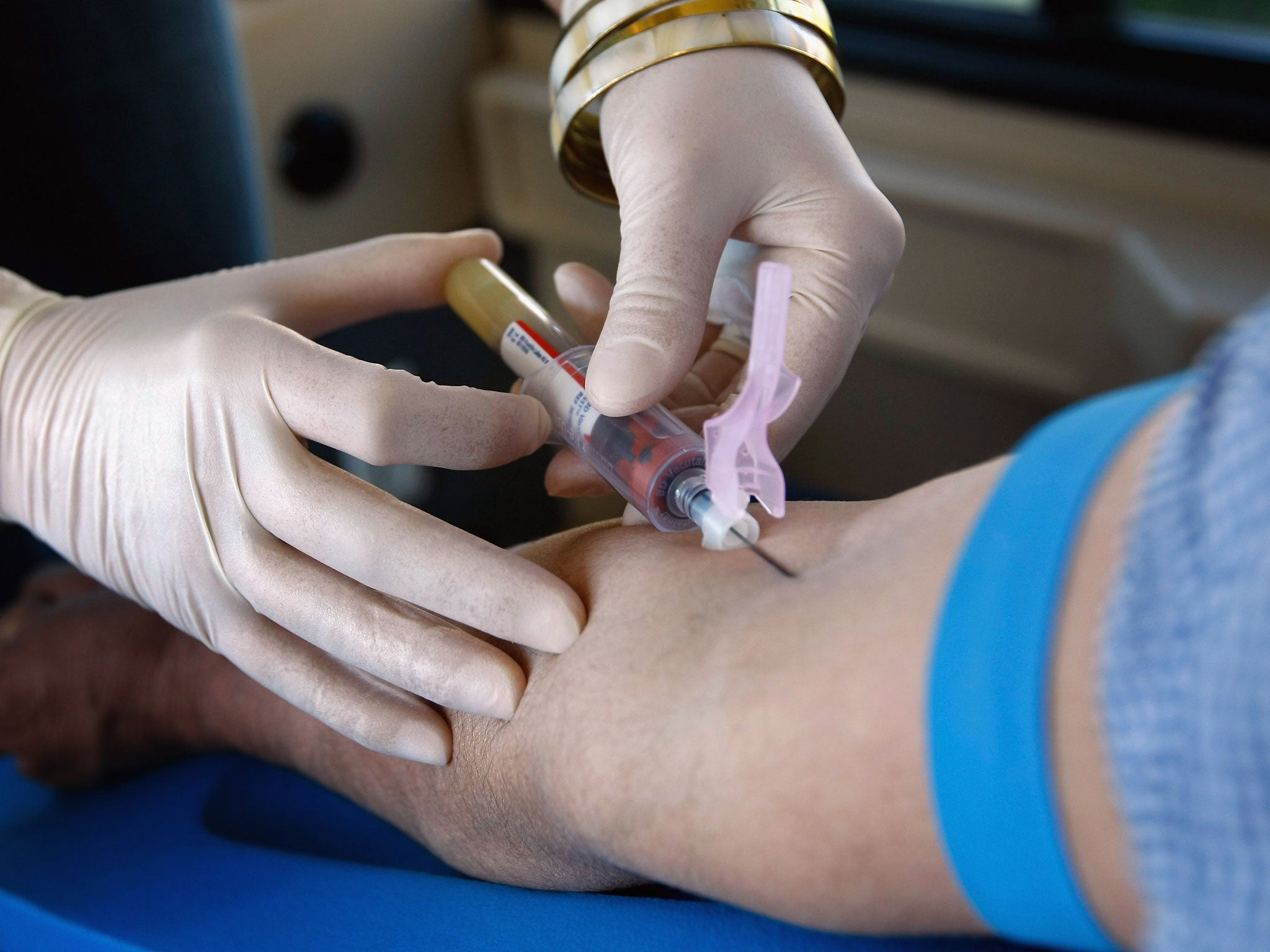Vampire therapy: young blood may reverse ageing
Researchers believe it may contain natural chemicals that turn back the clock to rejuvenate the ageing brain

Your support helps us to tell the story
From reproductive rights to climate change to Big Tech, The Independent is on the ground when the story is developing. Whether it's investigating the financials of Elon Musk's pro-Trump PAC or producing our latest documentary, 'The A Word', which shines a light on the American women fighting for reproductive rights, we know how important it is to parse out the facts from the messaging.
At such a critical moment in US history, we need reporters on the ground. Your donation allows us to keep sending journalists to speak to both sides of the story.
The Independent is trusted by Americans across the entire political spectrum. And unlike many other quality news outlets, we choose not to lock Americans out of our reporting and analysis with paywalls. We believe quality journalism should be available to everyone, paid for by those who can afford it.
Your support makes all the difference.It sounds like the stuff of vampire movies, but scientists have shown that an infusion of young blood can reverse signs of ageing.
Although the ghoulish experiment was conducted on laboratory mice, the next step could involve a study of elderly humans.
The researchers believe young blood may contain natural chemicals that turn back the clock to rejuvenate the ageing brain.
In the study, blood from three-month-old mice was repeatedly injected into 18-month-old mice near the end of their natural life span. The "vampire therapy" improved the performance of the elderly mice in memory and learning tasks. Structural, molecular and functional changes were also seen in their brains.
Writing in the journal Nature Medicine, the US team led by Dr Tony Wyss-Coray, from Stanford University, said: "Our data indicate that exposure of aged mice to young blood late in life is capable of rejuvenating synaptic plasticity and improving cognitive function.
"Future studies are warranted in aged humans and potentially those suffering from age-related neurodegenerative disorders."
Evidence was seen of new connections forming in the hippocampus, a brain region vital to memory and sensitive to ageing.
Ageing mice given eight infusions of young blood over three weeks improved their performance in mental tests. Infusions of blood from other elderly mice had no effect.
What caused the changes is still unknown, but it appears to involve activation of a protein called Creb in the hippocampus that helps regulate certain genes.
The scientists wrote: "One possibility is that introducing 'pro-youthful' factors from aged blood can reverse age-related impairments in the brain, and a second possibility is that abrogating pro-ageing factors from aged blood can counteract such impairments.These two possibilities are not mutually exclusive, warrant further investigation, and may each provide a successful strategy to combat the effects of ageing."
Dr Eric Karran, from the dementia charity Alzheimer's Research UK, described the results as "interesting", but added that the study "does not investigate the type of cognitive impairment that is seen in Alzheimer's disease".
PA
Join our commenting forum
Join thought-provoking conversations, follow other Independent readers and see their replies
0Comments